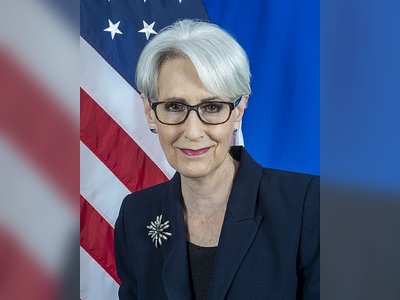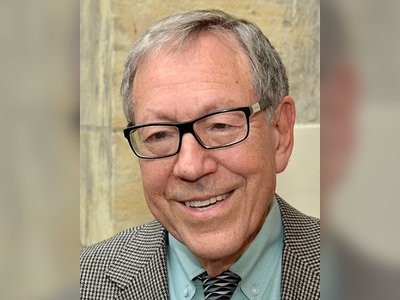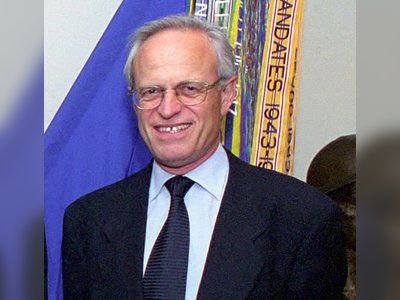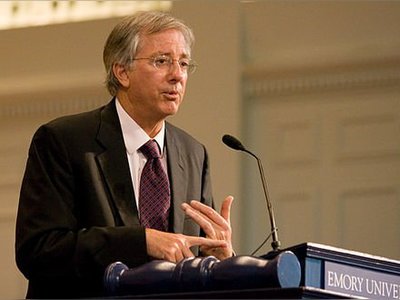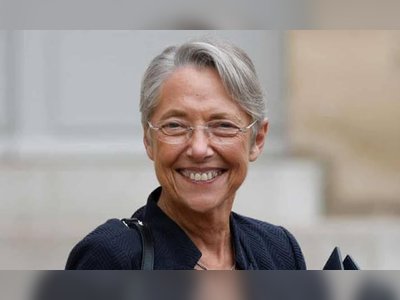Lawrence Henry Summers
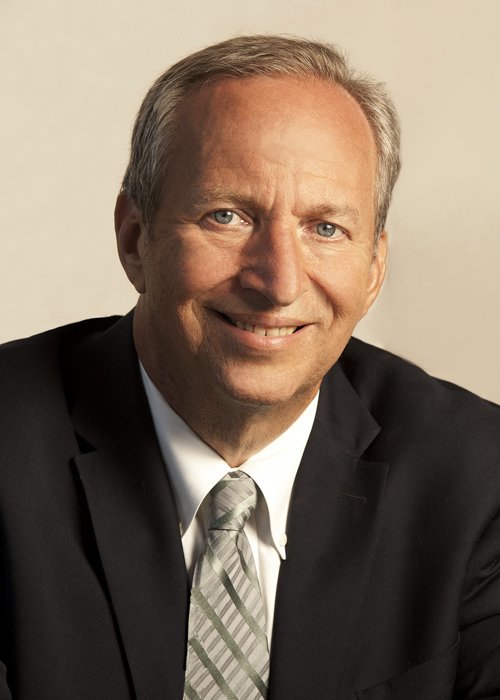
Lawrence Henry Summers, born on November 30, 1954, is an American-Jewish economist with a distinguished career in both academia and public service. He served as the 71st Secretary of the Treasury of the United States from 1999 to 2001 during President Bill Clinton's administration.
Summers continued his government service under President Barack Obama as the Director of the National Economic Council in the White House until November 2010. In recognition of his contributions to various fields within economics, he was awarded the John Bates Clark Medal in 1993.
From 2001 to 2006, Summers held the position of President at Harvard University. His resignation from this role was a result of a vote of no confidence by the university's faculty, largely stemming from disagreements between Summers and prominent scholar Cornel West, as well as issues related to potential conflicts of interest involving Andrei Shleifer. Summers also faced criticism for his economic policies during his tenure as Secretary of the Treasury, which later fueled ongoing debates.
Early Life:
Lawrence Summers was born into a Jewish family in New Haven, Connecticut. His parents, Anita and Robert, both economics professors at the University of Pennsylvania, had significant academic backgrounds. Robert was the brother of Paul Samuelson, a Nobel Prize-winning economist, and Anita was the sister of Kenneth Arrow, another Nobel laureate in economics.
Summers began his academic journey at the Massachusetts Institute of Technology (MIT) at the age of 16, where he participated in parliamentary debate. While initially studying physics, he soon switched to economics and completed his undergraduate degree in 1975.
In his third year, he studied under Martin Feldstein, a member of the Council of Economic Advisers to the President of the United States. Summers earned his Ph.D. from Harvard University in 1982 under Feldstein's guidance, becoming one of the youngest professors in Harvard's history at the age of 28.
During that time, he battled and fully recovered from Hodgkin's lymphoma. In 1987, he spent a year as a visiting researcher at the London School of Economics.
Summers was married to his first wife, Victoria Perry, with whom he has twins and a son. In December 2005, he married Elisa New, also a professor at Harvard.
Economist in Academia:
As a researcher, Summers made significant contributions to various areas of economics, with a focus on public finance, labor markets, macroeconomics, and financial economics.
Some of his early works argued that capital taxation and corporate taxation were inefficient forms of taxation. He believed that reducing the tax rate on capital income could promote economic growth.
Later in his career, while serving in the White House during the presidencies of Ronald Reagan and Bill Clinton, Summers advocated for policies that aligned with these views. One of Summers' notable findings in the field of labor economics was that unemployment benefits and transfer payments may unintentionally increase unemployment (known as the "welfare trap").
Summers also delved into international economics, economic demography, development economics, and economic history. His work often emphasized empirical economic analysis to provide answers to specific questions, such as whether stock returns and stock market turnover rates can be predicted or whether most recipients of unemployment benefits experience cyclical unemployment. In recognition of his contributions to the field, he was awarded the John Bates Clark Medal by the American Economic Association in 1993.
Public Service Roles:
Summers served as a member of the President's Council of Economic Advisers under President Ronald Reagan from 1982 to 1983. He also acted as an economic adviser to Michael Dukakis during the 1988 United States presidential election.
Chief Economist of the World Bank:
In 1991, Summers left Harvard and assumed the role of Chief Economist of the World Bank, a position he held until 1993. During this time, he expressed his views on global environmental issues, stating that there was no foreseeable limit to the Earth's carrying capacity and that concerns about global warming and other environmental issues were exaggerated. His comments sparked debate, with environmental economists like Lant Pritchett criticizing his perspective.
Summers' tenure at the World Bank was marked by controversy when it was revealed that some members of a Harvard Institute for International Development project, led by Summers, had invested in Russia, raising concerns about potential conflicts of interest.
Summers encouraged Russia to adopt policies of privatization, stabilization, and liberalization, similar to those he had promoted during Clinton's presidency. He also pressured North Korea to raise interest rates and balance its budget during a time of economic crisis, a policy that drew criticism from economists Paul Krugman and Joseph Stiglitz.
In 2009, it was revealed through documents that Summers had been a prominent voice within the Clinton administration opposing the United States taking a global leadership role in reducing greenhouse gas emissions and participating in the Kyoto Protocol.
Government Service Under President Clinton:
In 1995, President Bill Clinton appointed Summers as the Deputy Secretary of the Treasury, and in 1999, he succeeded Robert Rubin as Secretary of the Treasury. Much of Summers' tenure at the Treasury Department focused on international economic matters.
He played a significant role in the Clinton administration's efforts to bail out Mexico when its currency collapsed and in addressing Russia's 1998 financial crisis.
Summers initiated the Harvard Institute for International Development project, which advised the Russian government from 1992 to 1997. However, controversy arose when it was revealed that some project members had personal investments in Russia, potentially compromising their objectivity.
Summers resisted proposed tax cuts during the Clinton administration, particularly those put forth by the Republican-controlled Congress in 1999.
President of Harvard University:
When George W. Bush became President of the United States in 2001, Summers stepped down from his role as Treasury Secretary and returned to Harvard University. He served as the 27th President of Harvard from July 2001 to June 2006.
While he was considered the first Jewish president of Harvard, it's worth noting that Neil Rudenstine, his predecessor, was of Jewish descent, and Summers received praise from Harvard's Jewish community for his support. However, Summers faced public criticism for some of the decisions made during his tenure as Harvard's president.
Summers' career has been marked by significant contributions to both economics and public policy, with his ideas and actions continuing to influence economic and political discourse.
- לורנס סאמרסhe.wikipedia.org
